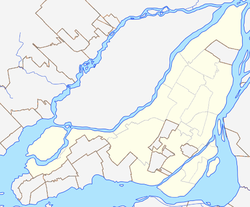| J&R Kosher | |
|---|---|
 J&R Kosher's old storefront | |
| Restaurant information | |
| Established | 1952 |
| Food type | Jewish kosher style delicatessen |
| Dress code | Casual |
| Location | 5800 Cavendish, Montreal, Quebec, H4W 2T5, Canada |
| Coordinates | 45°28′34.15″N73°39′57.57″W / 45.4761528°N 73.6659917°W |
| Website | J&R Kosher (official site) |
J&R Kosher Meat and Delicatessen is a Montreal kosher butcher and delicatessen established in 1952 by Robert Nemes, a Holocaust survivor [1] and immigrant from Romania. It is currently at 5800 Cavendish Blvd in the heart of the city's Jewish community. [2] J&R is the oldest and one of the most famous [3] remaining kosher meat shops in Montreal. [4] The store delivers its meat throughout Quebec and Ontario, and ships throughout the rest of Canada. [5] [6]
